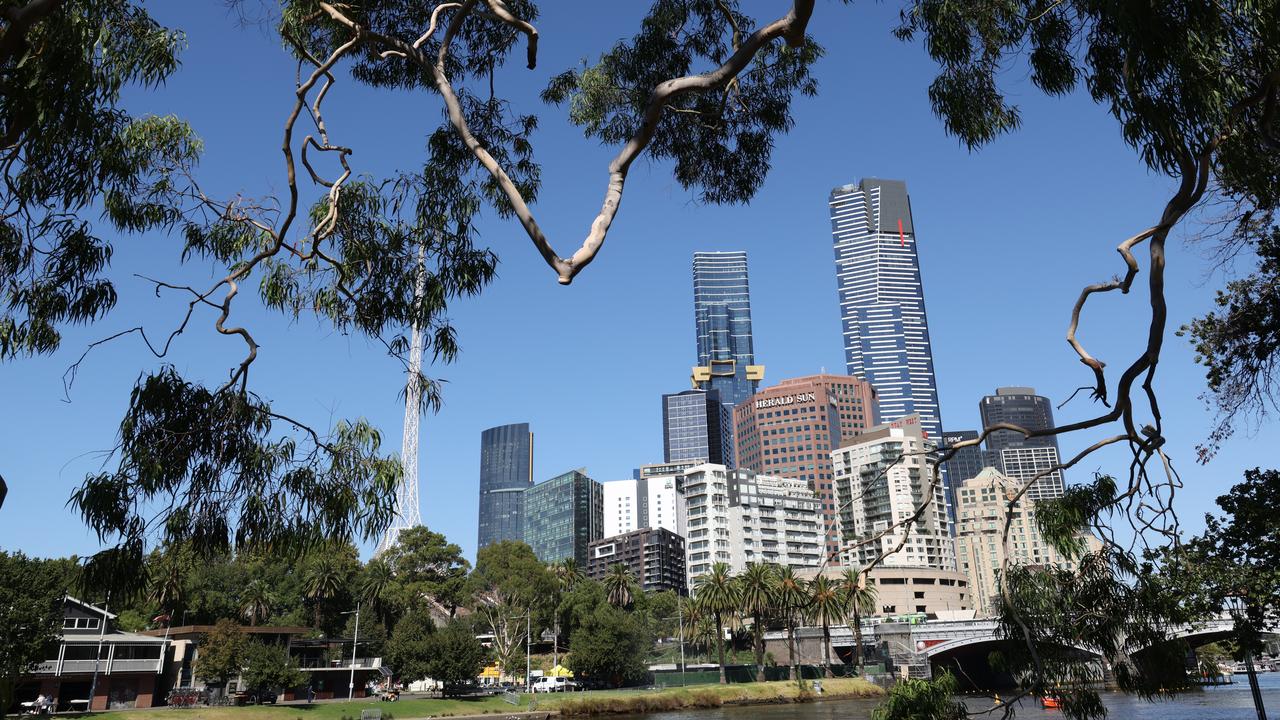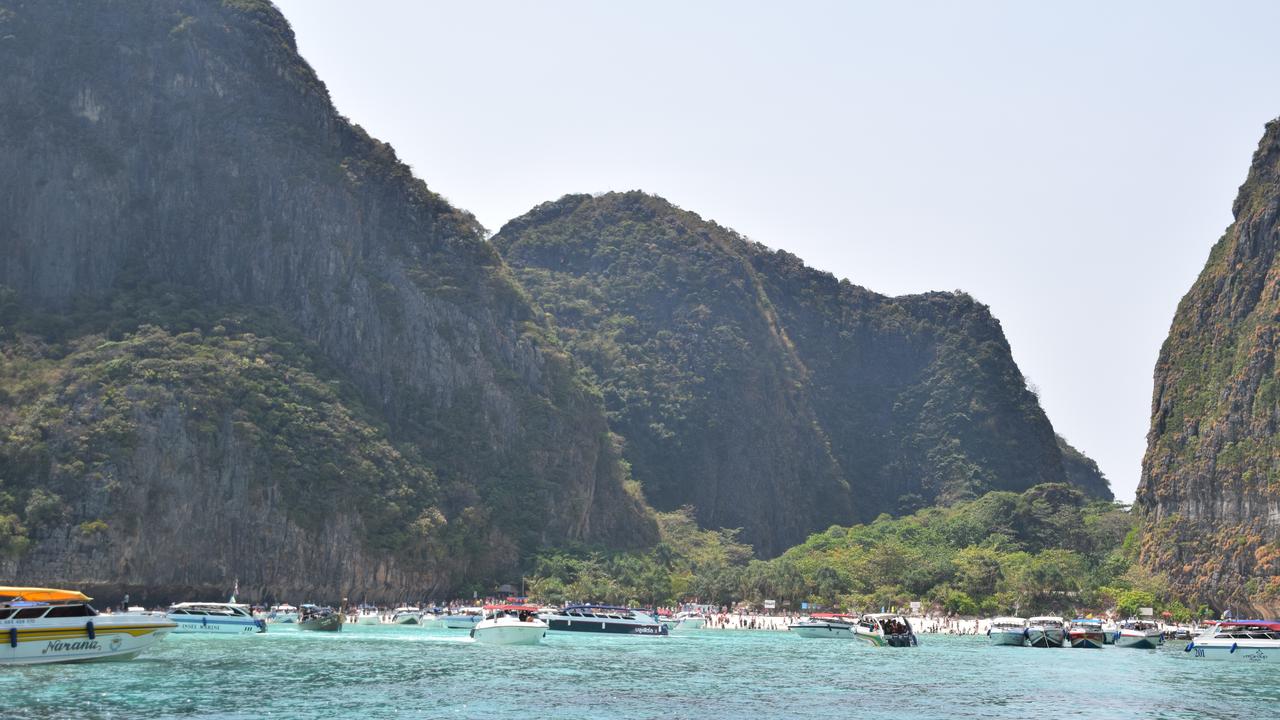How these war veterans forged friendship at Caroline Springs RSL despite generational gap
These war veterans are from different generations, have varied stories of serving their country but nurse the same scars. There is one place where they have found friends who understand their pain.
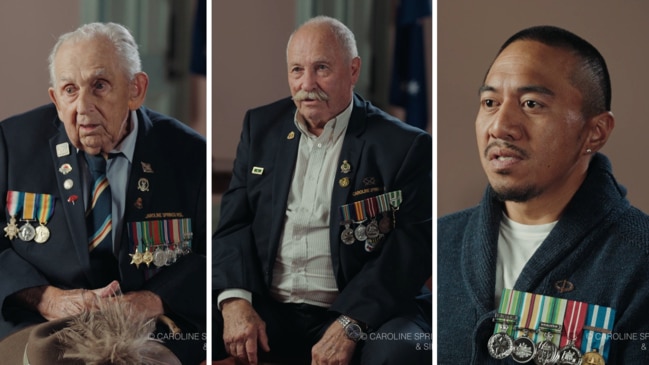
News
Don't miss out on the headlines from News. Followed categories will be added to My News.
Jon Saemo was silently reciting the Lord’s Prayer, over and over, as dozens of bullets spat up dust under his hand. He kept crawling. His mates ahead needed him.
This was Saemo’s first major fire fight in Afghanistan. Some instinct made him stop, and roll over, as rounds zipped where his head would have been.
Saemo’s leg jiggles as he tells this story, to the camera, for the first time.
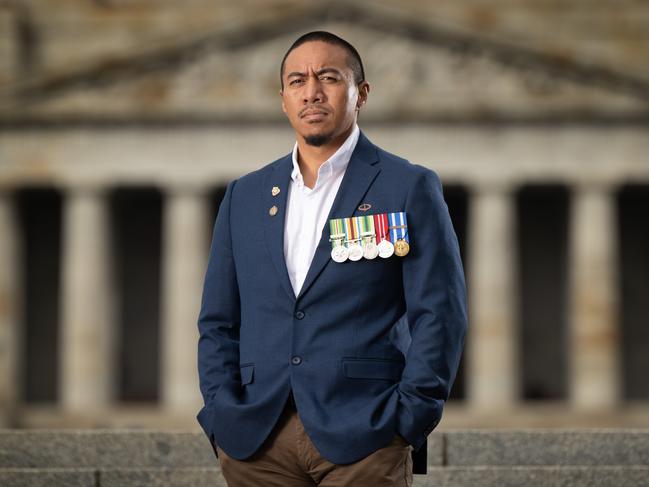
He joined up out of school, encouraged by an older cousin. The kid soldier grew up fast, first in the chaos of the Solomon Islands, then in a deployment to Afghanistan, where patrols outside the wire featured “contacts” (armed encounters) which could go 12 hours or longer.
There’s footage of him in 2007, buzzed after a contact the day before, apparently unburdened by the mortal dangers of his job.
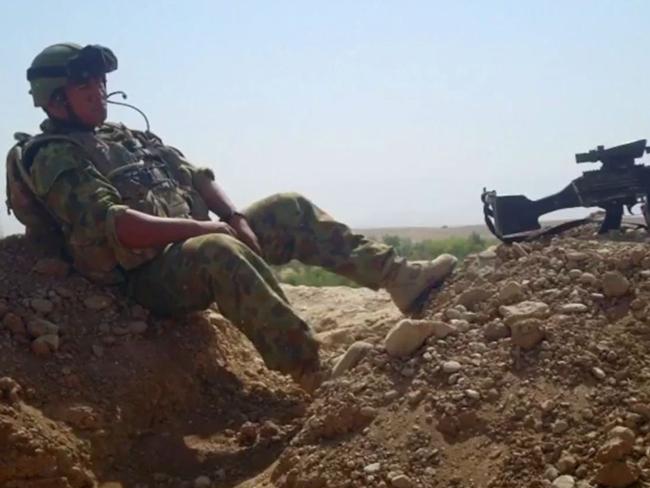
Yet the what-ifs of those times haunt him now. Saemo is embarrassed by these thoughts, though he knows he shouldn’t be.
He still flashes his blazing smile, but perhaps not as readily as in his days before combat. He will cry now, on film, less guarded than he once was about explaining his experiences, but also more guarded because of them.
“People see the external injuries but the internal ones are the ones which really sting,” he says.
The same shadows crowd the inner-eye of many Diggers after they come home. Saemo, at 36, nurses the same kind of scars as his old mate, Allan Godfrey, at 100.
They both share their very private stories in an upcoming documentary, Those Who Serve, in which everyday diggers from the Caroline Springs RSL sub-branch speak of their experiences in and after conflicts, from World War II to Afghanistan.
As Victorian RSL president Rob Webster says in the documentary, filmed by Side Trip Productions: “For many, it’s a safe place, where they can go and not be judged, to talk to their mates, talk it out.”
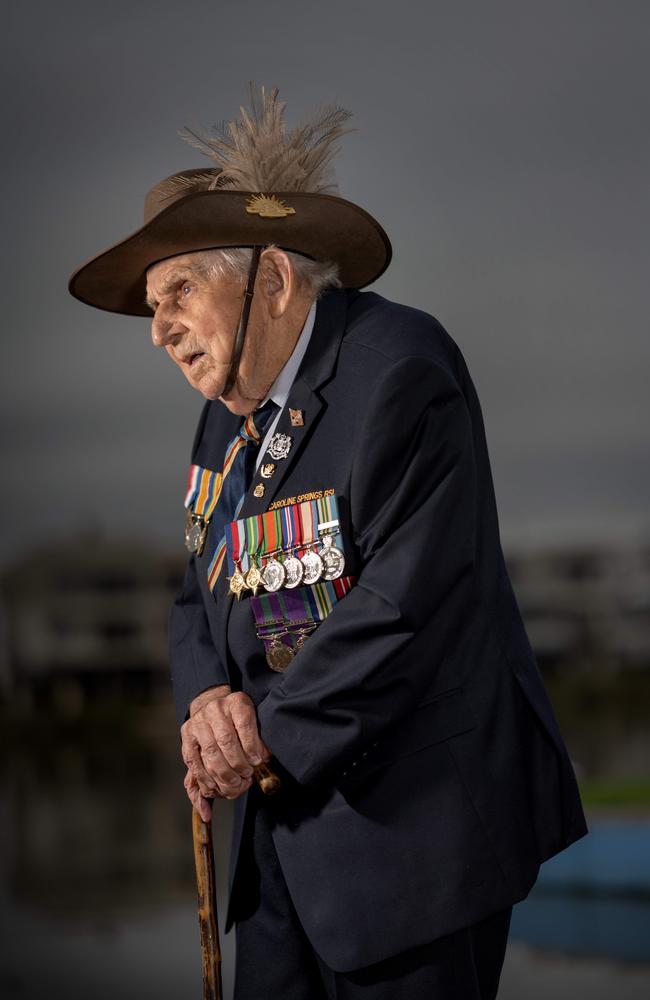
Caroline Springs’ most prominent RSL member has been Godfrey, who died last month aged 100.
Until his late 90s, when he hit the schools and the newspapers with his slouch hat and twinkling eyes, Godfrey was just another silent victim of war traumas.
He had tried to enlist at 17, but his father “belted me”. Godfrey was determined: “I went because the boys went … they had the coat and I thought, ‘gee, that’s a lovely coat, I’ll join the army’.”
Godfrey explains that he wasn’t very useful. He was terrified of the Japanese slicing off his limbs with their swords.
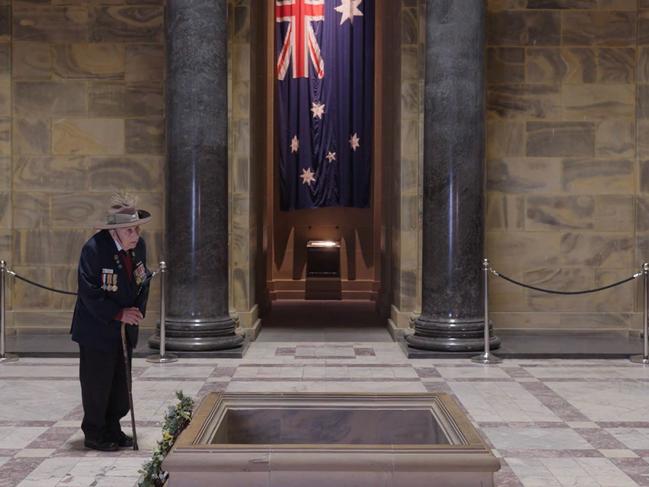
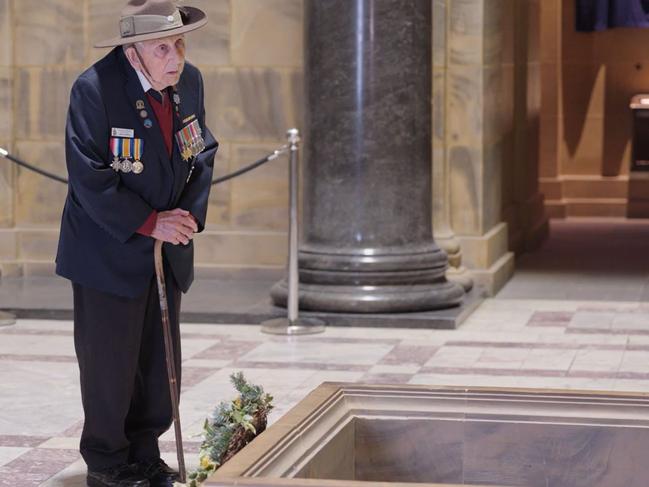
He transported the wounded in various hell holes in Asia, where he blotted the Red Cross insignia on his vehicle and fretted about snipers in the trees.
In the documentary, in scenes that trigger the tear ducts, he visits the Shrine and stands rigid in the sanctuary as a bugler plays the Lone Post.
He also speaks of a secret grief he almost carried to his death.
Godfrey was among a rescue party of prisoners-of-war in Borneo.
When they finally got to the camp, they found that thousands of Australian prisoners had been marched and executed in the dying weeks of the conflict.
“I’ve never told anyone that,” Godfrey says, breaking down. “We only got four (men).”
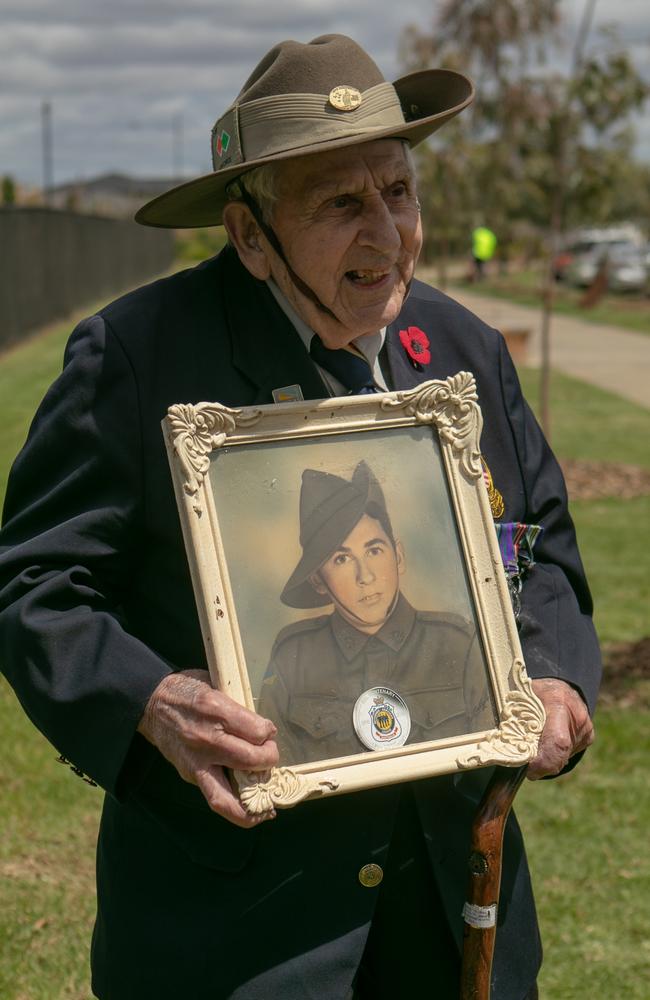
Another Caroline Springs RSL member, John Willis, remembers returning to Sydney after his military tour of Vietnam.
The skinny conscript had been sent down tunnels to find Viet Cong booby traps. He piled bodies burnt and broken after a battle. Now 78, and no longer skinny, he offers a wry smile for the time he couldn’t push back the pin of a grenade set in ambush.
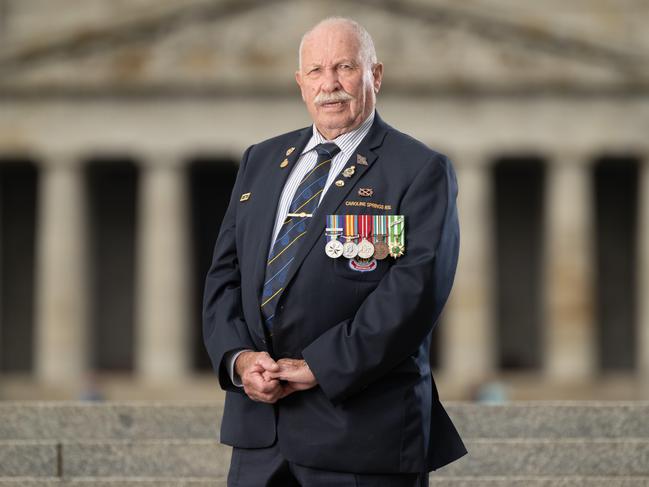
Willis was glad to be home. He doubted he would make it after being stranded in the final days of his tour in the Battle of Coral-Balmoral, when the North Vietnamese struck and 25 Australians were killed in weeks-long clashes.
His homecoming came with a warning. Demonstrators had mobbed outside the airport. Don’t engage them, he was told.
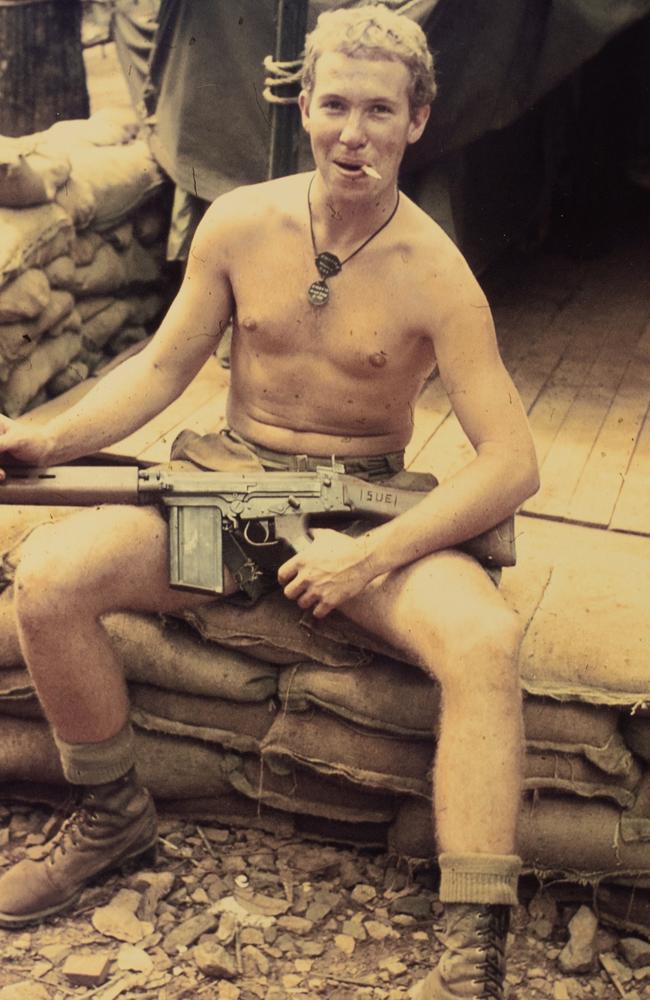
He walked out of the airport and saw his girlfriend. She yelled out to him. That was when “this sheila came up and spat on me”.
Willis did nothing, as ordered, except to wipe the muck from his face.
“I got a flight back to Melbourne the next day,” he says. “Then it was back to normal.”
Many veterans discover there is no normal after coming home.
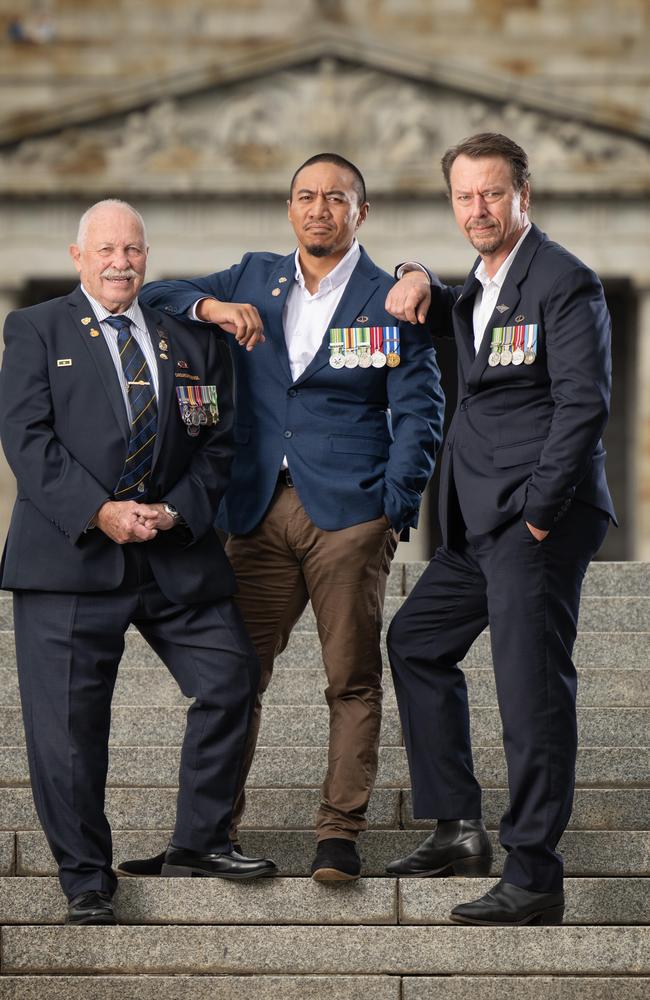
Bryan Ross, a reservist, served in Timor in 2002 as part of a UN peacekeeping mission.
Ross, now 54, is a health care executive who struggled with the transition from professional hypervigilance to civilian life after his return to his wife and young kids.
Years after his return, Ross was talking to his wife and oldest son.
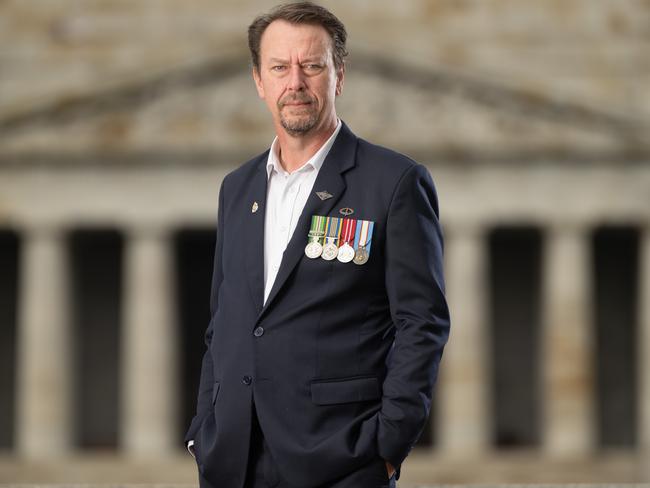
“You’ve never been the same since you returned from Timor,” they told him.
“Why you telling me this now?” he replied.
“Because you wouldn’t have listened before,” he was told.
As he says: “That made me realise, shit, I’ve got to do something about this because what I’m at risk of losing if I don’t get this sorted is too valuable.”
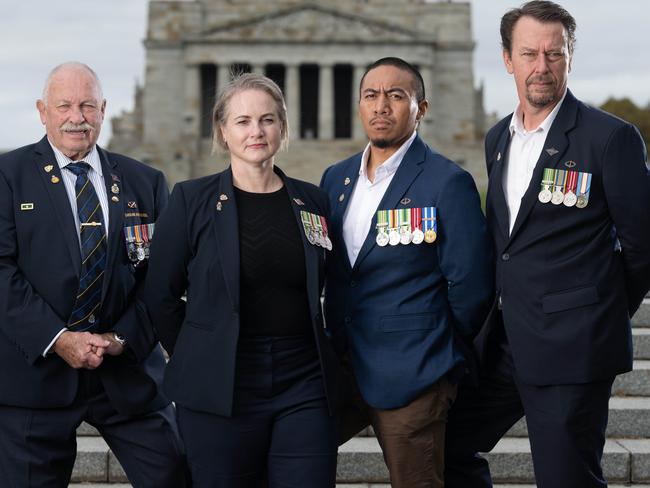
The Caroline Springs RSL sub-branch is just one of 267 in Victoria. Founded 10 years ago, with $65 and lots of hope, it’s a kind of big family, built on volunteers, which prides itself on its embrace of school kids and scouts.
Around here, remembrance is furnished with understanding. As Willis says: “I’d like people to know what I actually went through, as history.”
Communications manager Wendy Mason marvels at all the small kindnesses and care that go into a sub-branch. Its strength lies in the giving.
“It’s what’s achieved from the veterans’ service, that enduring camaraderie of spirit and community, that makes it so much bigger than any one member,” she says.
The sub-branch now boasts 300-odd members who run veteran support programs, fundraisers and school visits. Hats and caps are removed for the reciting of the Ode of Remembrance, which is played at 6pm every Friday night at the WestWaters Entertainment Complex, just before the raffle is drawn.
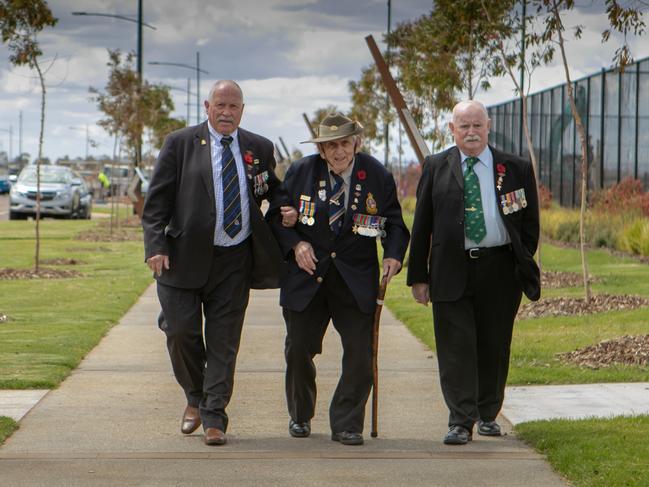
The likes of Saemo, Willis, Ross and Carolyn West often drop in for a drink. West, 50, joined the navy in the 1990s hoping to travel the world. Instead, after 9/11, she saw active service as a communications officer on the HMAS Newcastle in the Gulf. She joined the local RSL committee to foster emotional and physical wellbeing programs, especially for younger veterans.
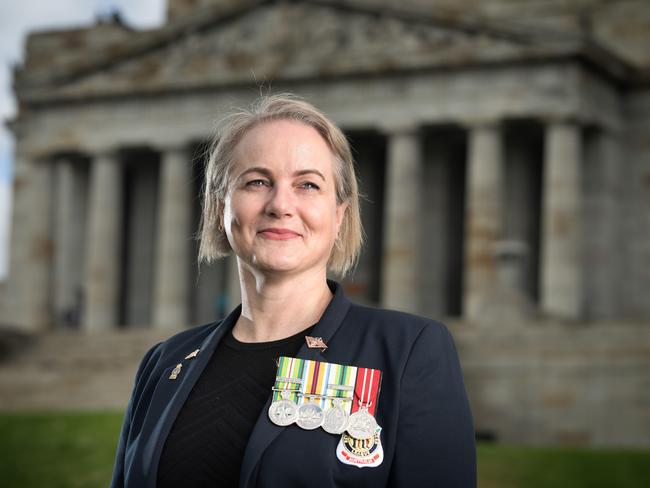
Ross MCs the dawn gathering of the very old and very young on Anzac Day. His need to be involved is described as a “brotherhood”.
“Those shared experiences are cross generational,” Ross says. “And those experiences are often so unique that it’s only people who have actually spent time in the military who can actually understand them.”
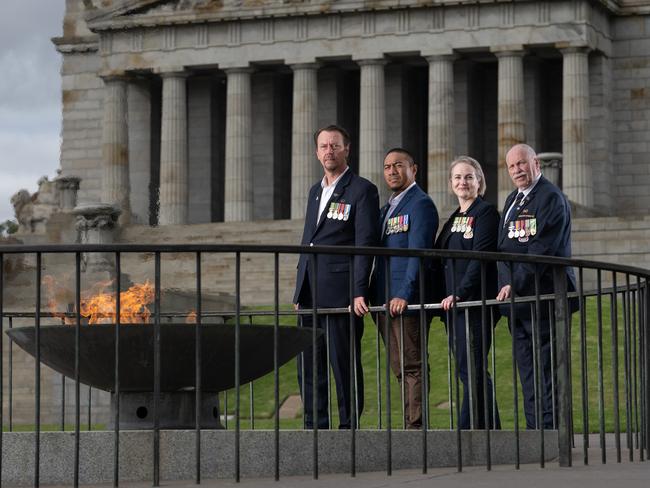
Saemo finds relief in playing golf – a lot.
His obsessive approach to the game, jokingly labelled as “unprofessional professional”, has yielded increasingly impressive rounds.
He describes the kinship of the Caroline Springs RSL sub-branch as a “mutual understanding”.
“I think that’s why for me the RSL plays a big part,” he says. “Because I know the boys, even if they are different generations, they know the pain.”
Those Who Serve is expected to be released at the end of May.



